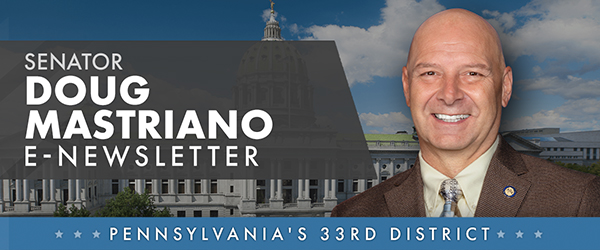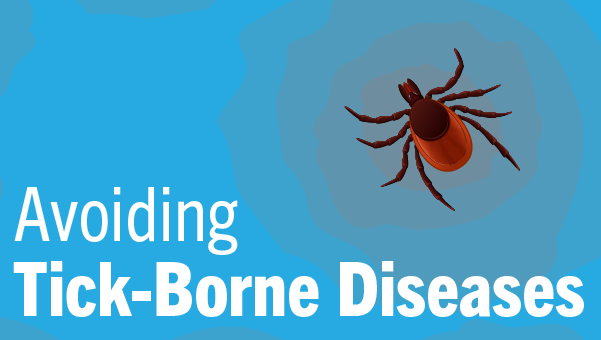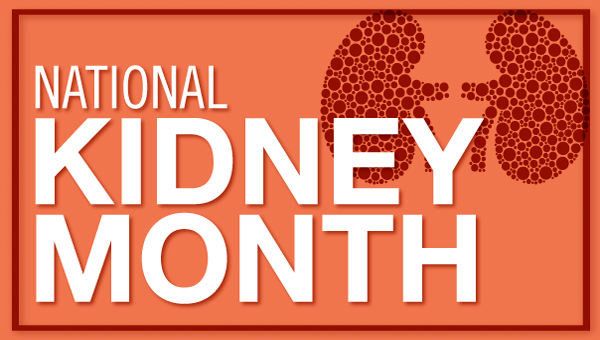
|
|||
|
In this Update:
Senators Mastriano and Hutchinson propose the “PA Energy Independence Act”Harrisburg- Senator Doug Mastriano (PA-33) and Senator Scott Hutchinson (PA-21) announced today that they will soon introduce legislation to stabilize energy costs for Pennsylvanians, protect against economic and international volatility in the long term, and utilize Pennsylvania’s unique natural resources to finally cement the commonwealth as a premier energy powerhouse. To spur natural gas production and investment, the legislation will focus on tax incentives and opening new state lands for production. To preserve coal-powered plants, the bill will exempt Pennsylvania plants from the EPA’s Wastewater Rule and Cross State Air Pollution Rule. The misguided Obama-era regulations have been revived by the Biden Administration and are the main culprits for the planned closure of Keystone and Conemaugh plants outside of Pittsburgh. The two plants employ about 320 full-time workers, 170 contractors, and generate enough power for up to 1.5 million homes. The bill will also establish an “Intrastate Coal/Natural Gas Use” provision to clearly state that any environmental regulation of coal and natural gas that is extracted and used in Pennsylvania can only be exclusively regulated by the Commonwealth, not by the Federal government. Lastly, the PA Energy Independence Act will make significant reforms to costly regulations, expedite the permit process, and immediately suspend Pennsylvania’s entry into RGGI which is projected to raise energy consumer costs by at least $2 billion over nine years and lead to the closure of at least five power plants within a year of entry. Natural gas and coal combine to account for over 60% of Pennsylvania’s electricity generation. “Russia’s barbaric invasion of Ukraine, resulting sanctions, and the international effects on energy prices have reminded Americans of the importance of cultivating our own domestic resources,” said Mastriano. “With our abundant resources, Pennsylvania should be largely immune to energy cost volatility. Cumbersome taxes, regulations, and restrictions are handicapping the potential of our energy sector. Many companies simply choose to invest in states that are more energy friendly. Market volatility will not go away anytime soon. It’s time to take steps now to assert energy independence.” “The terrible attack on Ukraine by Russia and its subsequent disruptions to international energy supply chains reinforces what I and many others have believed for years – that the United States, and Pennsylvania specifically, should make every effort to responsibly tap our domestic resources to reduce or eliminate our dependence on foreign energy,” said Senator Scott Hutchinson. “It will be difficult, but through efforts like this one we can work to reverse the dangerous and costly policies of the Biden and Wolf Administrations.” PA Energy Independence Act: Co-sponsor Memo Media Contact: Josh Herman (Mastriano) Pennsylvania and the War in UkraineThe Roman philosopher, Cicero, told a story of how King Dionysius answered a courtier, Damocles, who thought that ruling a realm was easy. In response to this, Dionysius switched positions with Damocles. But Dionysius ordered that a sword be suspended above Damocles’ head, held in place by a single strand of hair from a horse’s tail. It was then that Damocles realized the dangers that came with ruling a kingdom and happily remained a courtier. The moral of the story is that danger “hangs by a thread” and a miscalculation could result in catastrophe. The bellicose rhetoric of Vladimir Putin and his horrific invasion of Ukraine has put both Europe and the world in a dangerous position. A misstep of appeasement, or alternatively, going too far, could plunge the region into a catastrophic expanding war. The historic case of 1938 stands in the way, where weakness from “the West” emboldened Adolf Hitler. The cost of capitulation and appeasement was a costly world war. The lesson of this experiment with appeasement is best summed up by Winston S. Churchill, “An appeaser is one who feeds a crocodile, hoping it will eat him last.” Putin wants “neutral (puppet) states” as a buffer around his country and has gone so far as to call for a return to a 1994 status quo. The “status quo” was Europe before NATO expansion into Eastern and Northern Europe. This demand harkens back to a Soviet era when Moscow dominated and controlled the countries along its border. Yet, these nations rightly want self-determination and not to be a puppet state like Belarus, where the shots are called in Moscow. To safeguard their future, these nations usurpingly are eager for both NATO and EU membership. NATO provides a security umbrella while the EU offers a path to economic prosperity. In the meantime, the war rages with Ukrainian armed forces putting up an impressive defense of their nation from Russian aggression. Putin is only able to fund his war in Ukraine via oil and gas revenues which have gone from about $70 billion annually in 2017 to around $120 billion last year. This is driven by increased energy costs and diminished production in the United States. Although the war in Ukraine is largely a federal issue, there is much that can be done here in Pennsylvania. In the short term, our state must divest from all Russian financial interests and instead seek to invest in companies here in the Commonwealth. The idea that state revenue is used to invest in foreign adversaries such as Russia defies reason. And while we are at, we should seek to divest from the Chinese Communist Party as well. The next step is to immediately withdraw membership from the Regional Green Gas Initiative (RGGI), a New England version of the Paris Climate Accords that will cost our state $461 million this year, according to the governor’s own budget. This misguided plan will hurt the hard-working people of our state with higher energy costs, and with little demonstrable benefit to the environment. For the long term, it is high time to unleash the potential of Pennsylvania’s energy sector. We are blessed with abundant resources in the form of natural gas, coal, and oil. Production is suppressed by numerous state and federal regulations that must be rolled back now to increase domestic production. Pennsylvania is number two in natural gas production in the US and third in coal. But overregulation and taxation are driving our energy sector to neighboring states with more friendly business climates. If the potential of our state’s energy sector is unleashed, we can bring prosperity back to our state, help the United States become energy independent, and become a net exporter of energy to our allies in Europe. This will indirectly limit Putin’s expansionist wars by reducing his leverage over Europe (via Russian oil and gas exports) in addition to bringing down energy costs here in the commonwealth. Years of neglect and absent leadership in Pennsylvania has contributed to making our state one of the most regulated and heavily taxed in the nation. The drain on young people leaving the state is a direct result of tax and spend policies that make it too daunting to live and prosper in our commonwealth. A good place to start relieving some of the tax burden is to pass Senate Bill 813, a Gas Tax Holiday for Pennsylvanians. As gas prices continue to skyrocket, reducing our absurdly high gas tax will provide at least some immediate savings for consumers at the pump. Another measure is legislation that I will be introducing in the next week to roll back the regulations limiting the growth of our energy sector. The “PA Energy Independence Act” will stabilize energy costs for Pennsylvanians, protect against economic and international volatility in the long term, and utilize Pennsylvania’s unique natural resources to finally cement the commonwealth as a premier energy powerhouse. More can and should be done to stabilize our state’s economy to help our people weather the international storms and uncertainty. Acting on commonsense legislation is where we can start to get the government off our backs and out of our wallets. Senate Concludes Hearings on State Budget
The Senate Appropriations Committee this week concluded four weeks of public hearings on the proposed 2022-23 state budget. Gov. Tom Wolf proposed a $45.7 billion budget that would increase spending by $4.5 billion. Based on projections, this will create a $1.3 billion deficit in the following fiscal year and produce a $13 billion deficit by FY 2026-27. Among the key points from the series of hearings, which began Feb. 22:
The Senate will use findings from the hearings to craft an alternative spending plan to the governor’s, with the aim of enacting a final 2022-23 state budget by the June 30 constitutional deadline. You can find video and recaps of every budget hearing at PASenateGOP.com. How to Protect Yourself Against Tick-Borne Diseases
Lyme disease and the rare but dangerous Deer Tick Virus (DTV) have been found in ticks at high levels for the first time in multiple locations around the state. [THIS PARAGRAPH JUST FOR BAKER, LANGERHOLC AND CORMAN] The statewide infection rate is currently 0.6% of ticks sampled. At three locations, the DTV infection rate exceeded 80%: Fisherman’s Paradise public fishing area on Spring Creek in Centre County, Lawrence Township Recreational Park in Clearfield County, and Iroquois Trail near Tunkhannock in Wyoming County. The Deer Tick Virus is rare in the United States, but positive cases have increased in recent years. Initial symptoms of a DTV infection may include fever, headache, vomiting and weakness. Some people who are infected with DTV experience no symptoms, and therefore infection may go undetected. However, 91% of patients treated for DTV infections develop severe neuroinvasive disease. Recommended precautions for anyone venturing outdoors include:
For more information about tickborne disease prevention, visit Department of Health’s Tickborne Diseases website. Access Nursing Home Inspections Online
Pennsylvanians with loved ones in long-term care can access a searchable database of nursing homes to view the results of inspections and complaint investigations. The database includes patient care surveys, building safety surveys, size of the nursing home, type of ownership and additional information about each of the nursing homes in the state. The Department of Health oversees 688 nursing homes with more than 88,000 beds. If you see something that may jeopardize patients’ safety or well-being, you can file an anonymous complaint by calling 1-800-254-5164, filling out an online form, emailing c-ncomplai@pa.gov or sending a letter in the mail. March is National Kidney Month
More than 37 million people in the United States are estimated to have chronic kidney disease and nearly 90% of them are unaware. If you have diabetes or high blood pressure, you are at higher risk for developing kidney disease. The National Institute of Diabetes and Digestive and Kidney Diseases has useful information during National Kidney Month and year-round. Happy St. Patrick’s Day!
To everyone who is Irish or Irish for the day, Happy St. Patrick’s Day! May the road rise up to meet you, |
|||
|
|||




Want to change how you receive these emails? 2026 © Senate of Pennsylvania | https://senatormastriano.com | Privacy Policy |




